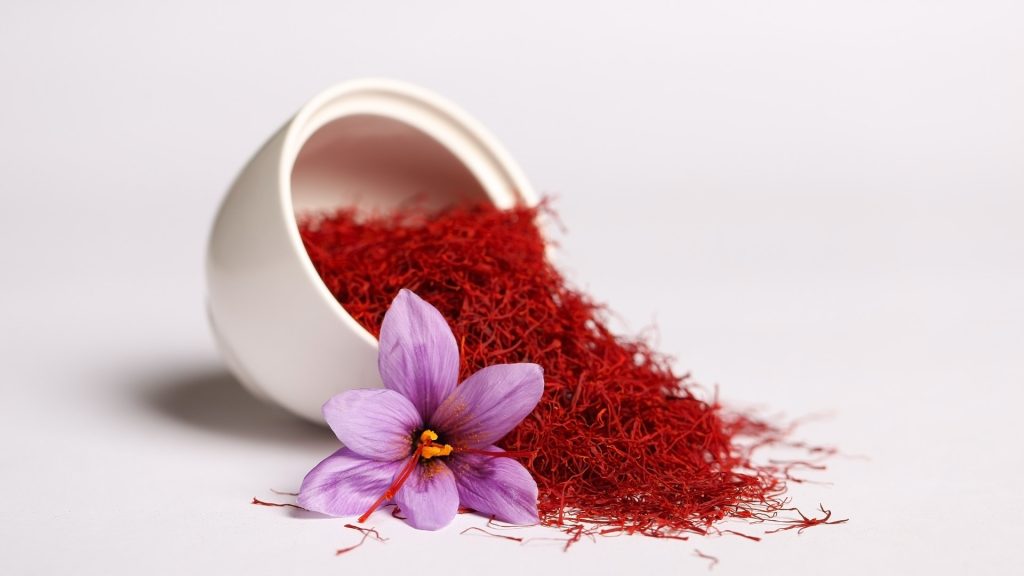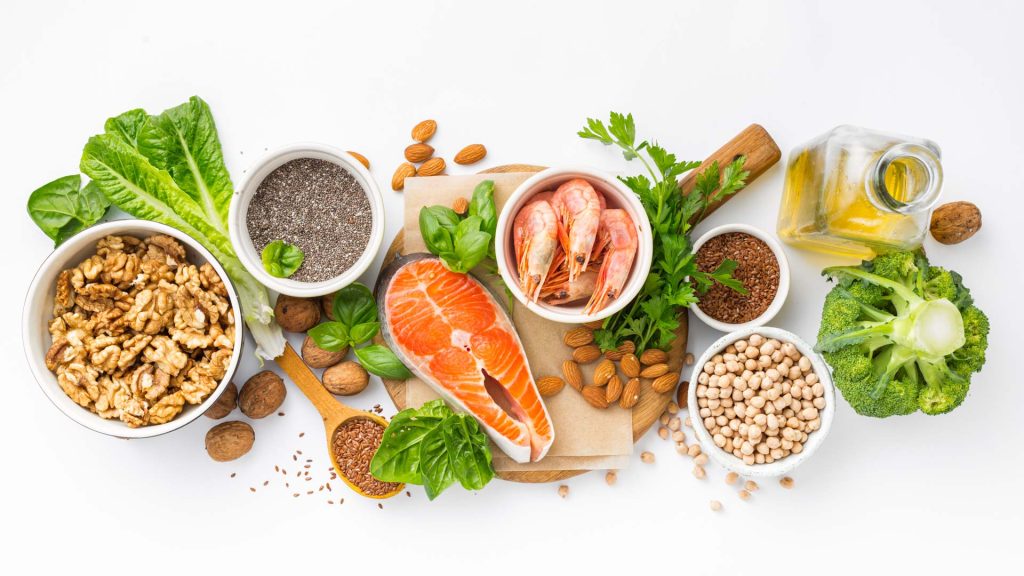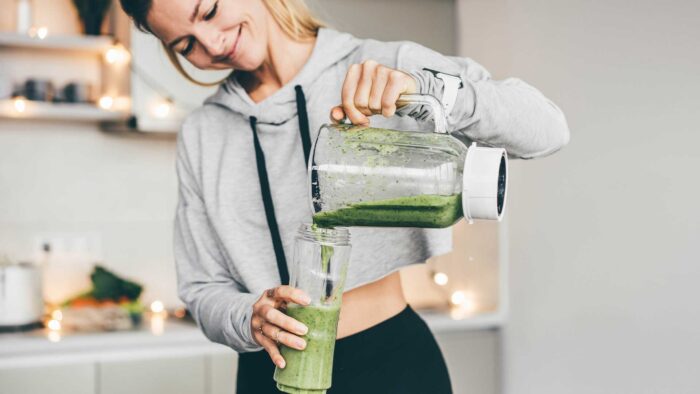From stress to serenity: supplements that can make you feel better
- READING TIME 7 MIN
- PUBLISHED February 12, 2024
- AUTHOR Donna
Key takeaways
- B vitamins can bolster your body’s resilience against stress by supporting adrenal function and producing mood-regulating neurotransmitters.
- Saffron is known for its therapeutic and antidepressant benefits. It can also help you sleep better. Untreated anaemia can harm both the mother and child.
- Meanwhile, magnesium, L-theanine and omega-3 fatty acids can contribute to emotional stability and a general feeling of calmness.
From stress to serenity: supplements that can make you feel better
In today’s fast-paced world, moments of calm sometimes feel elusive. But have you considered the impact of nutrients? Certain dietary supplements are emerging as aids for mental tranquillity. These supplements aren’t quick fixes but can still help pave the way towards a calmer mind. Here are some options known for their soothing effects.
Magnesium: essential mineral for relaxation
Referred to as the “relaxation mineral”, magnesium plays a critical role in nerve function and mood regulation. It influences the chemical workings of your brain and its neurotransmitters serotonin, gamma-aminobutyric acid (GABA) and glutamate, which are messengers responsible for mood and nerve signalling. By regulating these neurotransmitters, magnesium can help maintain a sense of calm and balance.1, 2
The nutrient may also improve sleep, a critical building block of mental health.3, 4 This is again due to magnesium’s role in maintaining healthy levels of the GABA neurotransmitter, which also supports relaxation and sleep.

The recommended daily magnesium intake depends on your age, gender and lifestyle. Adult women+, for instance, should aim for 310–320 milligrams of magnesium daily. During pregnancy, this amount increases to between 350–400 milligrams and slightly changes again while breastfeeding to 310–360 milligrams daily.5
Supplemental magnesium is beneficial in proper doses. Higher-than-recommended amounts, on the other hand, may result in diarrhoea, nausea or stomach cramps. In extreme cases, excessive amounts can also lead to irregular heartbeat, low blood pressure and feelings of confusion.6
B vitamins: the unsung heroes of calmness
This group of vitamins is known to support the body’s resilience against stress, reduce fatigue and potentially lower the risk of developing mood disorders like depression.
Vitamin B9 (folate) and B12, in particular, support adrenal function, helping your body to recover quicker from the physical and mental toll of stressors7 , while B6 encourages the production of serotonin, dopamine and GABA.8 B vitamins are also critical for helping the body release energy from food, as well as supporting cognitive function and memory.9
Second and third trimesters: The iron requirement increases during the later stages of pregnancy. A common recommendation for iron supplementation is 30 milligrams per day.8, 9
Incorporating foods rich in B vitamins into the diet is a natural way to tap into their benefits. Dietary examples include whole grains, beans, peas and lentils, meat, especially liver, as well as eggs, dairy products and leafy green vegetables.
That said, receiving the needed amounts of B vitamins can be trickier for certain groups of people such as the elderly and vegans. Here, supplements can bridge the gap. It’s best to take a balanced B-complex supplement or individual B vitamins based on specific needs and under the guidance of your doctor.
Though B vitamins are generally safe, excessive intake can lead to certain unwanted side effects such as nerve toxicity, particularly with B6, where the average intake for women+ should be about 1.5 milligrams per day.10
Saffron: an ancient spice with modern-day calming qualities
Saffron, a spice derived from the stigmas of the Crocus sativus flower, has been known not just for its culinary use but also for its therapeutic benefits. For centuries, it was used in Persian, Indian and Mediterranean medicine to calm nerves, improve mood and even as an aphrodisiac.

Recent studies suggest that saffron might have antidepressant properties. Safranal and crocin compounds found in saffron are believed to influence serotonin, dopamine and norepinephrine – neurotransmitters that we now know are vital for mood regulation. The antioxidant properties can also protect the brain from oxidative stress, which is often linked with anxiety and other mood disorders.11
Research has also pointed to saffron’s potential in improving sleep quality. This can be attributed to its possible effects on the sleep-wake cycle and its interaction with the GABA receptors that play a marked role in sleep regulation.12
While saffron is a common ingredient in many dishes, its therapeutic doses can be much higher than the amounts used in the kitchen. For promoting calmness, studies have typically used dosages ranging from 20 milligrams to 30 milligrams of saffron extract daily.13 This amount has been found to be effective in improving mood and reducing feelings of anxiety and depression in some individuals.
Like with any supplement, it’s important to make sure that any saffron is high quality and free from mixing with other substances.
Saffron extract is also an essential ingredient of Donna’s QUBIX RELAX, a supplement that is engineered to support your mental health by promoting relaxation, balancing mood and reducing fatigue. Jump over to our dedicated page to find out more.
L-theanine: tea’s secret ingredient
L-theanine, an amino acid, is found primarily in green tea. But unlike some relaxation substances, L-theanine calms the mind without making you feel sleepy. Instead, it offers a gentle, natural ease that helps take the edge off life’s daily stress.
At its core, L-theanine works by influencing certain feel-good brain chemicals. It helps increase the production of these calming brain chemicals, helping you feel more relaxed and potentially less anxious.14 A daily dose of 100–400 milligrams should be enough to gain exposure to L-theanine’s benefits.15

Several studies have found that L-theanine might also improve sleep quality by increasing serotonin production, which converts to melatonin in the pineal gland in your brain. Up to 200 milligrams about 30 minutes before bedtime should do the trick.16
While L-theanine is generally considered safe and is well-tolerated by most, it may still cause mild side effects, including headaches, dizziness and upset stomach in excess amounts.17 The substance may also amplify the effects of other substances or medications that impact the central nervous system, such as alcohol or anti-anxiety medications.
Omega-3 fatty acids help nurture the brain
Omega-3 fatty acids are foundational components of the brain’s cell membranes. Their presence supports effective communication between neurons and is thought to promote a sense of well-being and emotional stability.18
Omega-3s also have powerful anti-inflammatory properties.19 By reducing brain inflammation, these healthy fats may act as a natural mood stabilizer, helping to ward off feelings of anxiety and unease. Higher levels of omega-3s have also been linked to reduced production of the body’s stress hormones – cortisol and adrenaline.20, 21, 22
For those seeking to harness the calming benefits of omega-3s, consider incorporating foods rich in these fatty acids, such as fatty fish like salmon, mackerel and sardines, as well as flaxseeds and walnuts.

Since these foods are not on our typical everyday menu, most people could benefit from taking omega-3 in a supplemental form. The optimal dosage varies based on individual factors like heart health, cognitive support or general wellness. For general health, however, a common recommendation is to take about 250–500 milligrams of combined EPA and DHA daily.23
As with every nutrient, omega-3 supplements may also cause some side effects. Although still rate, the most common are digestive problems, blood thinning, blood sugar fluctuations or low blood pressure.
A critical role of supplements in regulating mood
As we seek balance in our lives, natural aids like vitamin B or saffron can offer a subtle, yet noticeable support. Keep in mind, however, that supplements are typically only one piece of the puzzle in achieving mental tranquillity, and should be partnered with proper diet, exercise, therapy and all other efforts that you feel will provide protection against excessive stress and worrying.
REFERENCES
- https://pubmed.ncbi.nlm.nih.gov/27933574/
- https://www.sciencedirect.com/science/article/abs/pii/S0031938496005069
- https://pubmed.ncbi.nlm.nih.gov/34883514/
- https://pubmed.ncbi.nlm.nih.gov/33865376/
- https://www.hsph.harvard.edu/nutritionsource/magnesium
- https://www.mayoclinic.org/drugs-supplements/magnesium-supplement-oral-route-parenteral-route/side-effects/drg-20070730
- https://www.ncbi.nlm.nih.gov/pmc/articles/PMC6770181/
- https://lpi.oregonstate.edu/mic/health-disease/cognitive-function
- https://www.nhs.uk/conditions/vitamins-and-minerals/vitamin-b/
- https://ods.od.nih.gov/factsheets/VitaminB6-HealthProfessional/#h6
- https://www.ncbi.nlm.nih.gov/pmc/articles/PMC9000812/
- https://www.researchgate.net/publication/351142716_Effects_of_Saffron_Extract_on_Sleep_Quality_A_Randomized_Double-Blind_Controlled_Clinical_Trial
- https://www.drugs.com/npp/saffron.html
- https://www.sciencedirect.com/science/article/pii/S2352385915003138?via%3Dihub
- https://healthnews.com/nutrition/vitamins-and-supplements/l-theanine-dose-for-anxiety/
- https://pubmed.ncbi.nlm.nih.gov/30707852/
- https://www.healthycell.com/blogs/articles/what-are-the-side-effects-of-l-theanine
- https://www.health.harvard.edu/blog/omega-3-fatty-acids-for-mood-disorders-2018080314414
- https://www.frontiersin.org/articles/10.3389/fpsyt.2020.00122/full
- https://renuerx.com/supplements/omega-3s-and-stress-do-fish-oil-supplements-drop-your-cortisol-levels/
- https://faseb.onlinelibrary.wiley.com/doi/epdf/10.1096/fj.14-268342
- https://academic.oup.com/ijnp/article/17/3/383/758961
- https://www.healthline.com/nutrition/fish-oil-dosage
RELATED ARTICLES
Explore more
Feed your curiosity with more content. Dive deeper and explore our selected articles, curated just for you.



